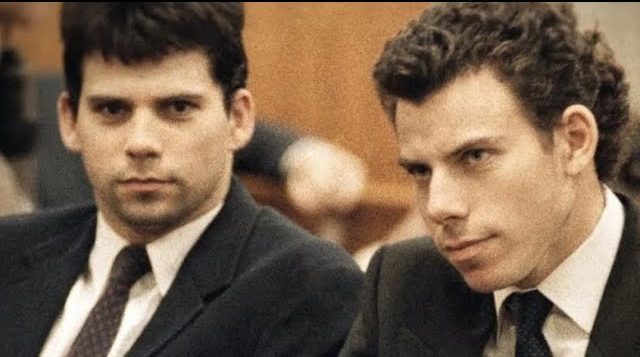“Monsters: The Lyle and Erik Menendez Story” Review
By Maureen McCabe
“Monsters: the Lyle and Erik Menendez Story,” the latest offering from Ryan Murphy and his co-creator Ian Brennan, details one of the most talked about true crimes in recent memory, the brutal murders of Jose and Kitty Menendez by their sons Lyle and Erik in 1989. The title immediately sets out a challenge: it asks the viewer to decide who are the eponymous monsters. Are they the brothers, rich, handsome scions of a well to do Beverly Hills family who cold-bloodily gunned down their parents with shotguns to inherit their money? Or is it their father, Jose Menendez, a self- made Cuban immigrant who horrifically abused his sons mentally, physically and sexually for years, and their mother Kitty, who was either a willing participant in the abuse or a complicit bystander? Perhaps the monsters of the title are the members of the media, who voraciously covered the murders and the subsequent highly publicized trials? Or maybe it is us, the viewers, who devour the true crime genre, the more lurid the better?
The series opens with the incredibly awkward funeral of the Menendez parents. Lyle and Erik are depicted as acting strangely, but is it from grief or guilt? Then the show flashbacks to one of several very graphic depictions of the bloody murders before segueing into lavish recreations of the Menendez’s sunny, southern California lifestyles. Along the way, upbeat 80’s pop ballads pump in the background, making some scenes resemble music videos, giving them a gloss of stylized unreality. The actual events are bizarre enough. Directly after the murders the brothers were not considered suspects, to the point where they were not even checked for gunshot residue, but as time as went on, and their behavior became more erratic, and through some highly unlikely (but factual) events involving Erik’s therapist and his mistress, they were eventually arrested.

During the first trials (the brothers were tried together but had separate juries) the most shocking revelation was the defense’s insistence that they killed their parents not out of greed, as the prosecution charged, and their wild spending spree afterwards tended to support, but out of fear and self-defense after a lifetime of horrendous emotional, physical and sexual abuse by their parents. As anyone whose seen any of Murphy’s previous true crime series knows that he adores ambiguity, and frequently employs an Rashomon-ish approach to storytelling. Unfortunately, in Monsters this willingness to consider all points of view often undercuts the dramatic trajectory, as does the highly inconsistent tone, ranging from slightly campy to heartbreakingly dramatic. Lyle and Erik alternately come off as wounded, tragic figures and nasty, entitled brats. How you feel about the brothers and whether or not you believe the abuse is real or fabricated, and if it was in fact real if that excuses or mitigates their actions, may very well vary from episode to episode, which seems to be what Murphy was aiming for. Whether or not viewers finds that emotional whiplash compelling or repetitive would depend on their patience with, and appreciation for, this approach. If you’re waiting for Monsters to develop a moral stance on the case and the serious issues surrounding it, you will be disappointed.
Murphy sets the murders against the context of a particularly hellish version of Los Angeles, replete with the Rodney King riots, the Northridge Earthquake and the OJ Simpson trial but if he’s trying to make an argument that the milieu is a contributing factor it never really persuades. The inclusion of Simpson, who is only seen in partial angles, is a distracting reminder of Murphy’s superior “The People v. O.J. Simpson: American Crime Story” although like many of the events in Monsters that seem outrageously unbelievable, it’s based at least partly in fact. One of the Menedez brothers did advise O.J. to take a plea deal, although in real life it was Lyle, not Erik, as seen in the show.
The sterling cast delivers award-winning performances across the board. Nicholas Alexander Chavez as Lyle and Cooper Koch as Erik are alternately amusing, horrifying, and tragic. Chavez shows the hurt beneath Lyle’s glossy surface, which like his toupee hides more painful secrets. Koch gives a tour de force performance in episode five, “The Hurt Man,” where for over 30 harrowing minutes, in one long shot, he describes his father’s sickening, unrelenting abuse. Javier Bardam is at his darkly menacing best, even as he allows the briefest flickers of vulnerability to show through. Chloe Sevigny has perhaps the trickiest part to play, as her Kitty is a cipher: is she a pathetic wife who loves her husband too much or is she a cold and heartless abuser. Nathan Lane as Dominick Dunne is wonderful as the gossipy, but grief -stricken Vanity Fair correspondent whose musings on the case stand in for society’s response. Ari Graynor makes defense attorney Leslie Abramson a full-realized, passionate, humane force of nature.
The powerful acting keeps the viewer engaged, even during the over long running time, as does the still shocking subject. During its first week on air, the show was Netflix’s most watched drama. Its popularity has most likely been boosted by the controversy which has followed its release, with members of the Menendez family calling it a “grotesque shockadrama” that is “riddled with mistruths.” Erik Menendez criticized the production through a statement released by his wife, decrying its “disheartening slander,” and describing the portrayal of Lyle as “rooted in horrible and blatant lies.” In particular, a fantasized depiction of an incestuous relationship between the brothers has been heavily condemned as untrue.

But Ryan Murphy has hit back at the criticism telling Entertainment Tonight that “there were four people involved, two people are dead, what about the parents? We had an obligation as storytellers to also try and put in their perspective based on our research, which we did.” He also insists that the abuse, which was covered extensively, was handled sensitively and responsibly. Some people are calling for Lyle and Erik, who were sentenced at their second trial to life in prison (their first ended in a mistrial) and have been incarcerated for more than three decades, to have a new trial, believing that in today’s more mental health friendly climate they would have been found guilty of manslaughter and been released by now. On October 4, 2024, just after Monsters had been airing for two weeks on Netflix, Los Angeles District Attorney George Gascon announced that his office will review the Menendez’s case, stating that he has “a moral ethical obligation to review what is being presented.” Even if the series never makes a case as to who the real monsters are, it has certainly gotten people talking, which may have been the whole point in the first place.
- Maureen McCabe







